Sweet Smoke | Interview
Sweet Smoke was born in Brooklyn sometime in the mid 60’s when musicians from three different popular local groups got together.
Jay Dorfman and Marvin Kane were in one band, Andy Dershin was playing in another, and Mike Paris headed up a third band who were on the verge of a record deal right before he left to join the other three. The name, originally Sweet Smoke of the Happy Plant Pipeful, was coined by drummer Jay and was later shortened for general usage to Sweet Smoke – a name clearly emblematic of the times.
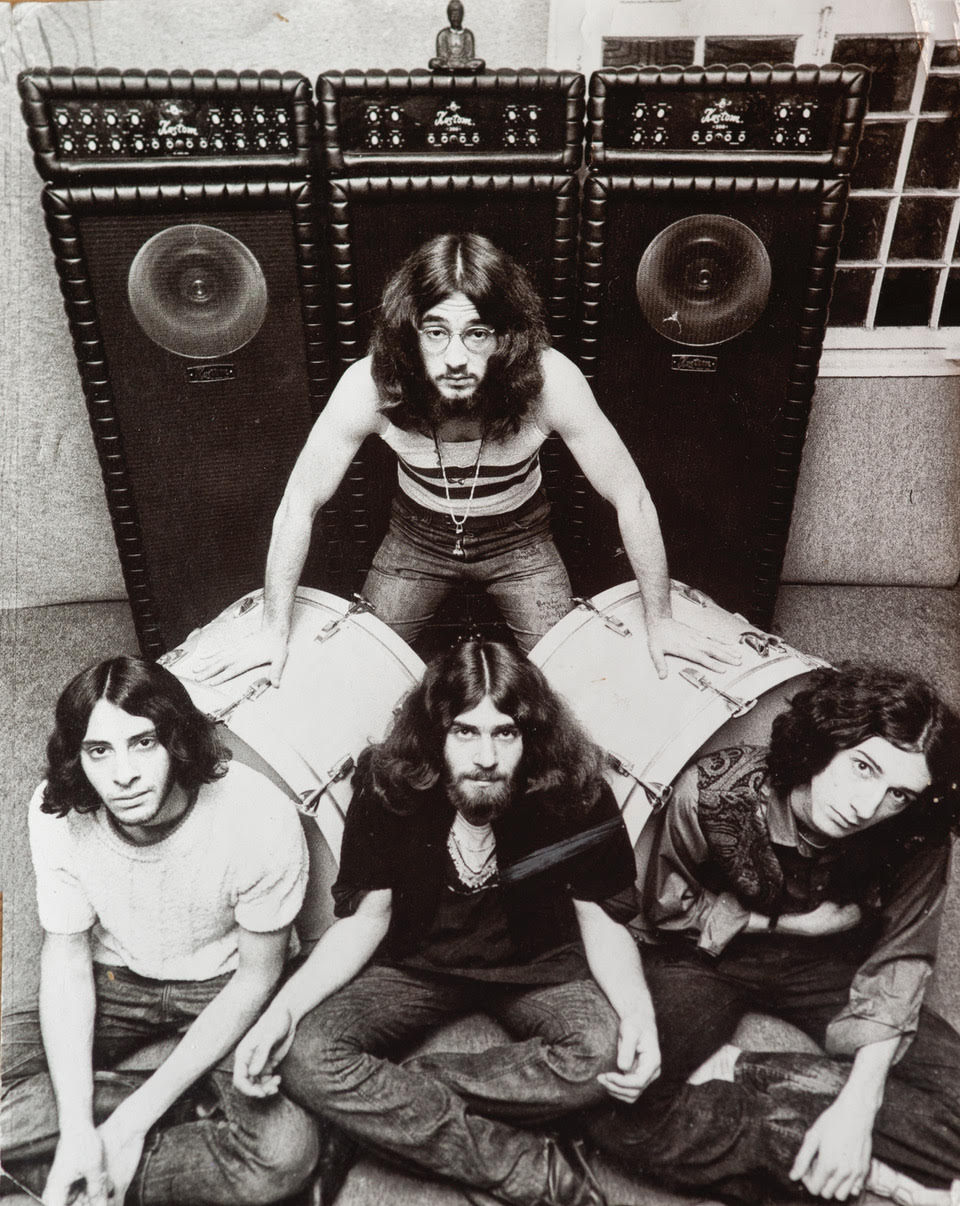
“Sweet Smoke was born on the psychedelic cloud that was headed to adventures”
Jay Dorfman: The four original members [Mike Paris, Marvin Kane, Andy Dershin, Jay Dorfman], represent the core of Sweet Smoke. Three of us have remained good friends for over 5 decades and to this day we still play as solo musicians and on occasion meet to spend a weekend of music either at Andy’s or Jay’s place. Both have modest studios set up in their homes. Mike is rarely present as he married and relocated to India decades ago where he lives with his wife. When he does come to the USA it’s a treat to have him present and when the four of us are in the same room it’s as if we entered a time machine and find ourselves immediately transported back to the origins of the psychedelic 60’s.
Originally there was a 5th member in the band Victor Sacco who played lead guitar, he left the band early on. The band had developed an appreciation for the singer song writers of the days. Dylan, James Taylor, Donovan. An old friend Steve Rosenstein really fit that description and was asked to join the band. Steve played rhythm guitar and violin on the first two albums. He also wrote a few tunes on ‘Darkness To Light’. Steve lives in L.A. and we see him when he comes back to the East Coast.
Andy’s brother Jeff who joined Sweet Smoke around the time of our 2nd studio album ‘Darkness to Light’ was indisputably a huge influence on the band. He contributed a few of his songs and profound musicality to the band. Gratefully he lives close by Andy’s home and when the band comes together, Jeff will show up and then it’s like we never stopped playing together.
My guess is that these days a lot of young musicians have remained interested in the origins of classic rock and are reading music magazines and just keeping in touch with what’s happening in all genres of music all over the world. I’m fascinated by the fact that young people are interested in bands from the past.
“The sweet spot of psychedelia”
Jay Dorfman: History has a strange sort of way of blurring things out when you try to recall where things started and how they were concocted. Especially the sixties, as they say, if you remember it, then chances are you weren’t there. We all came out of school around 1967, and we found ourselves living in what can only be described as the sweet spot of psychedelia.
There was so much coalescing in the years that we got out of high school. We were all like 16, 17, and that summer 1967, which actually has been termed historically, “The Summer Of Love” was one of the most momentous and explosive years in the the cultural history of America. Everything was shifting and sliding, politics, music, religion, … The young people against the old people, the old guard against the brash outspoken youth. A generation gap had formed in that time the likes of which we had never seen before in America. And in that sweet spot, we simultaneously found each other. We were trying out a bunch of musicians, some came in, some went out, members were chosen both on their musicianship as well as by a meeting of the minds. We were inspired by all things psychedelic and early jams held in the basement of our parents’ homes yielded hours upon hours of what I think back on as largely unintelligible cosmic jams fueled by psychedelic drugs and the pure energy of youth. Eventually the rawness began to coalesce into something that resembled songs and melodies. The Sweet Smoke sound was clearly something that erupted out of a pure gesture of free form and improvisation.
“We were riding the crest of a wave”
It should be understood from 1967 to 1971, which is a short span of only four years, the most important classic, most memorable rock albums of all time were created. As a new band we were wide open to influences and had no shortage of inspiration to draw on. The work of this first wave of early rock pioneers was destined to define the entire generation and served to deeply effect the sound and direction of early Sweet Smoke.
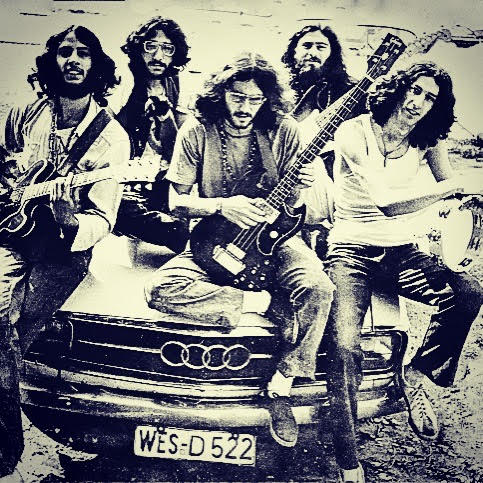
In those early days we saw the release of The Doors’ first album, ‘Surrealistic Pillow’ by the Jefferson Airplane, Love’s ‘Forever Changes’, Led Zeppelin’s first album, ‘Sgt. Pepper’, Country Joe & The Fish, King Crimson, ‘Disraeli Gears’ by Cream, ‘Satanic Majesties Request’ from the Rolling Stones, Iron Butterfly’s ‘In-A-Gadda-Da-Vida’ and The Zombies. There must have been something in the air responsible for this renaissance. Practically everything we listened to in those days served to inspire, and all these bands toured and played concerts in our backyard playground, New York City. Every classic timeless record that we’re still listening to was invented when Sweet Smoke was coming of age. In that era between 1967 and 1970, you just had to breathe in the air and the spell was upon you… If you could play three chords, had decent musicians who actually owned their own equipment you could be a Rock n Roll band. Add to that a healthy appreciation for the powers of psychedelic drugs and there was a very good chance you were headed towards being a member of a band.
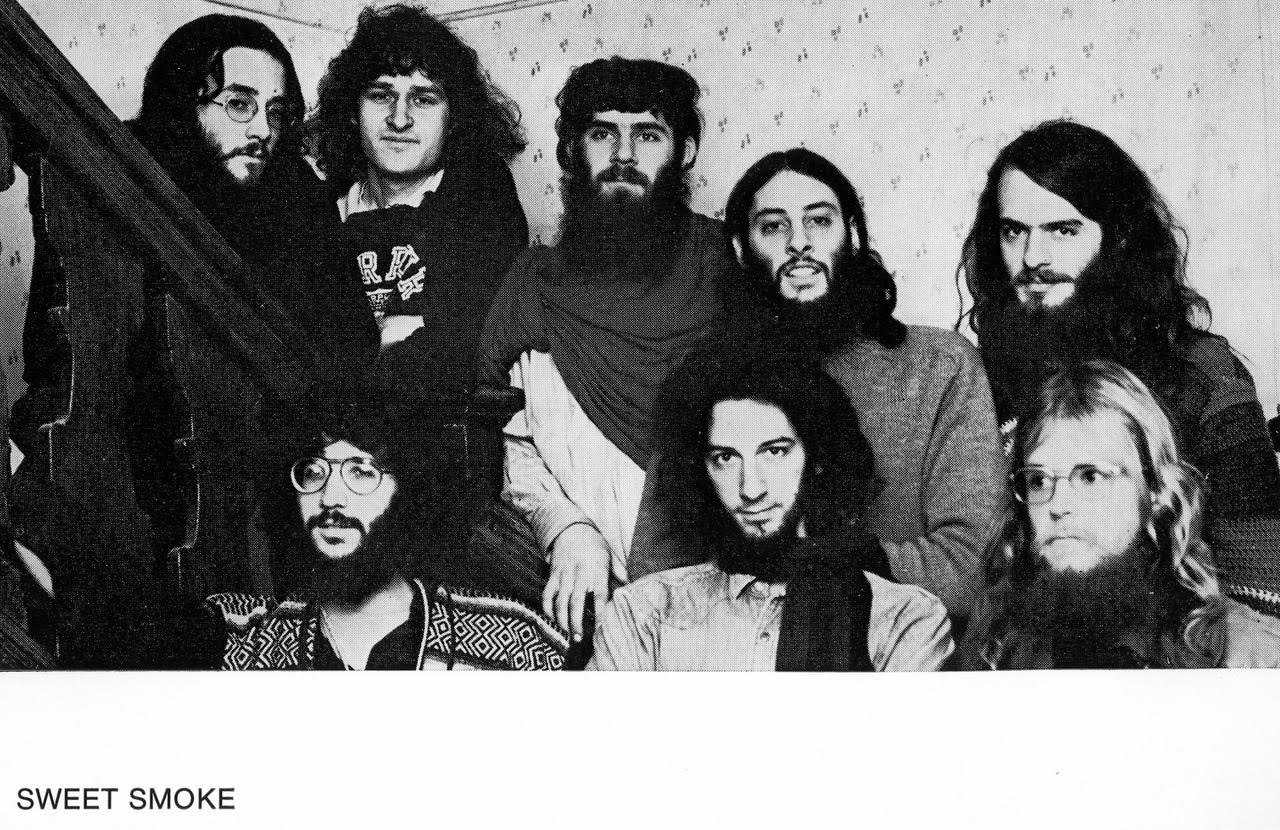
And that’s sort of how it all began. I mean, we worked hard to put it together but It was sort of laid out for us based on the times we were living in. When we came of age, forming a rock and roll band was a rite of passage and we grabbed onto it with everything we had.
“I think a lot of that has to do with our early explorations into inner spaces”
We had been taking psychedelic drugs and consciousness expanding chemicals, I’d say for well over 50 years.
Andy Dershin: When’s the last time you took one of those though?
Jay Dorfman: Well, I mean, whether it’s getting together and smoking, you know, mind expansion is mind expansion. If you have a long history of toying with your consciousness and then you take a hit of a joint you’re propelled right back to all of those same cosmic places.
Some of us keep closer track of what’s happening that’s new, you know, the new generation of music and some of us are still sort of steeped in the music that was happening when we were first starting out but the important thing is that we’re all still inspired. We’ve been doing this for 50 years. Sweet Smoke is still somewhat of a band or at least we’re musicians and we like getting together and we love music and we’re still in the mode of discovering. I think a lot of that has to do with our early explorations into inner spaces.
Marvin Kane: I am the lead guitar player and lead vocalist for Sweet Smoke. Interestingly, not much has changed, you know. We are still the same as we were. When the band ended I went to Boston to study music formally for 4 years and I kept playing in bands, local bands, and I really never stopped. One of the things that fascinates me is how the interest in Sweet Smoke is still there. It’s like it never went away. We’re always seeing Facebook posts and comments about how the younger generation is sort of rediscovering our music. One fan told us that his father gifted him our first release, ‘Just A Poke’, and plays it every day. It’s sort of gratifying to see that because we had no idea how we were affecting people at the time we were doing it.
Andy Dershin: Before Sweet Smoke, we were all playing different styles of music. Before I joined the band, I was playing with the Raves at the Cafe Wha? in Greenwich Village. There was a band called the Fugs playing next door in a theater. The Lovin’ Spoonful were playing at a club on the corner. Frank Zappa had his own dedicated theater where he and The Mothers of Invention played every Saturday night. We paid $5 to watch Zappa jam with some of the best musicians in the world for a couple of hours. Further down the street Jimi Hendrix was playing in some seedy downstairs venue to small crowds. There was so much going on around us, …
Marvin Kane: Yeah, that’s right. I think that we’ve talked about this before. We think of it in terms of a gigantic cultural wave that happened, it was a wave and we were just riding the crest of the wave. It’s not as though we made any big conscious decisions to do this or that. We were riding a wave with so many other people. And so a lot of things were decided for us, we just rode the wave to wherever it took us . I mean, I would say that we went further than others did because look where we ended up doing. We ended up in Europe for several years making albums, uh, and there are lots of bands during that period locally that didn’t do that. So, I know it was a combination of the wave, which was the opportunity and then us, you know, grabbing the opportunity and saying, “yeah, let’s do this.”
“Music was the soundtrack to the cultural upheaval of an entire generation”
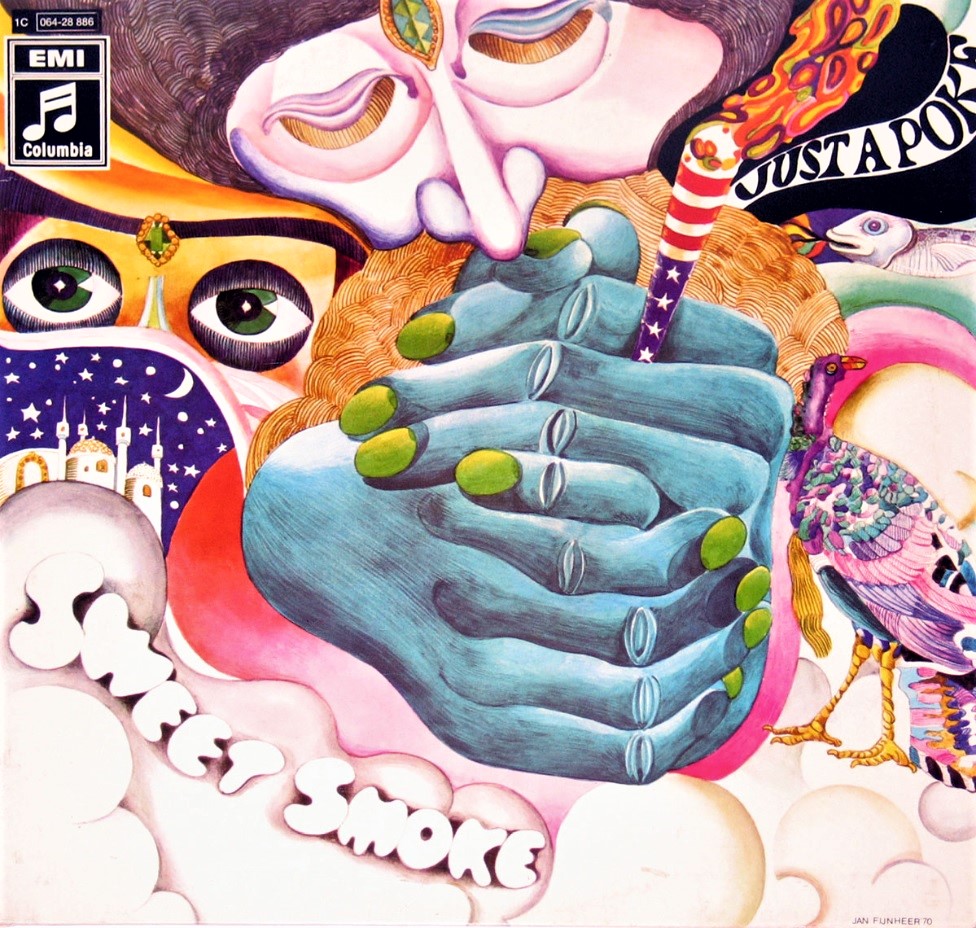
What’s interesting to me is that every generation thinks their music was the coolest music, like my parents’ generation in the 40’s and the big band swing music, which was great music. But I think that all the forces that came together during our generation really created the best music. I just don’t think subsequent generations can claim that. That’s not to say there isn’t great music, there certainly is. Just not to the extent that there was then. It’s because the music was the soundtrack to the cultural upheaval of an entire generation.
Andy Dershin: At the time when we were coming up, the record business was also a very good business to be in. And because of that, they would look for talent to shepherd, to give them some money, get them in the studio to try to see if they could do something special. In those early days the labels had entire A&R departments. Folks in charge of what was called Artist and Repertoire. For the labels there was a long term investment in the bands they signed, and that was also something that we benefited from. It wasn’t like we had all the music and we recorded it in our basement with a digital system, and then put it on our Facebook page or our social media channels or our website. It wasn’t like that at all. We talk about being consumed by a wave, but it was also the fact that we showed some promise. I found it interesting when I saw The Queen movie recently. We were doing what we were doing right around the time Queen was doing some of the recordings we recorded with EMI. We were in Cologne, in Germany, in an EMI studio where we tried to record ‘Just a Poke’. And we had a huge failure that day in a recording studio. The sound engineer assigned to us had no experience with pop music. He was used to recording classical music, you know, symphony orchestras and such. So when we tried to capture the sound of lead guitar, for example, which is often loud and intentionally distorted, he kept trying to “fix” it. And, that’s what took us down the road to Conny Plank. But the thing is, we got there in this funny way. Why? Because some people thought we had promise and people were willing to give us a budget to go in and lay down some tracks. It’s unfortunate, but that doesn’t exist anymore, you know?
Marvin Kane: Luckily we ended up with Conny Plank. We had no idea at the time that he was going to be a legendary producer. If you look at his bio and the things that he did it was clear that he was on the cutting edge. And I think we were fortunate to have that relationship with him.
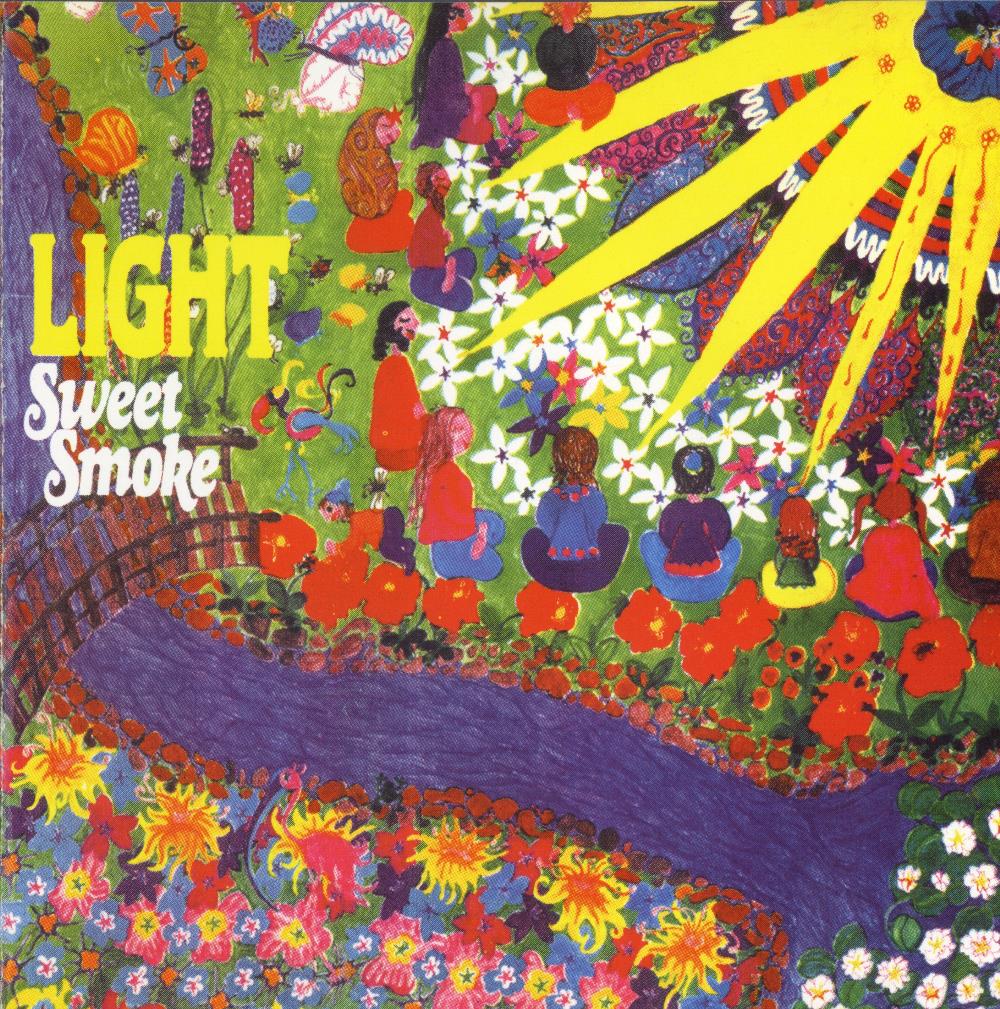
Jay Dorfman: We met Conny around 1970 or 1971. From 1971, one of the first bands he recorded in his Cologne studio was us. He really liked us and learned some early tricks and took us under his wing. Soon after we left the studio, he recorded another band that went on to some success, Kraftwerk. He started working a lot in America. He produced albums by Eurythmics. He produced Devo. He did a band that I’ve always loved, Ultravox. And then of course he worked with the brilliant, Brian Eno. He almost did all of Kraftwerk records. He also produced and recorded the big German band called Can, who we used to cross paths with. Connie became the absolute number one guru producer for all of the experimental music in Europe. And it all started interestingly enough with Sweet Smoke.
“It’s one thing to just be caught up. It’s another thing to dive into the waves and ride them.”
Andy Dershin: There were things that happened to us like working with Conny that in a way just dropped into our laps. That was the interesting part about it. There were a lot of people we all knew who were musicians who wanted to do what we did, but couldn’t get it done. Michael, our sax player who now lives in India with his wife, was a real force in wanting to put the band together and largely responsible for the early direction and song writing for the band. He had a keen ear for a wide variety of music forms and for the leader of a pop band was a formidable jazz saxophonist. Everything we wrote and recorded, although originating in Mike’s imagination was the result of a group effort. We all pitched in. Looking back I would say that it’s one thing to just be caught up. It’s another thing to dive into the waves and ride them. And that’s what we did.
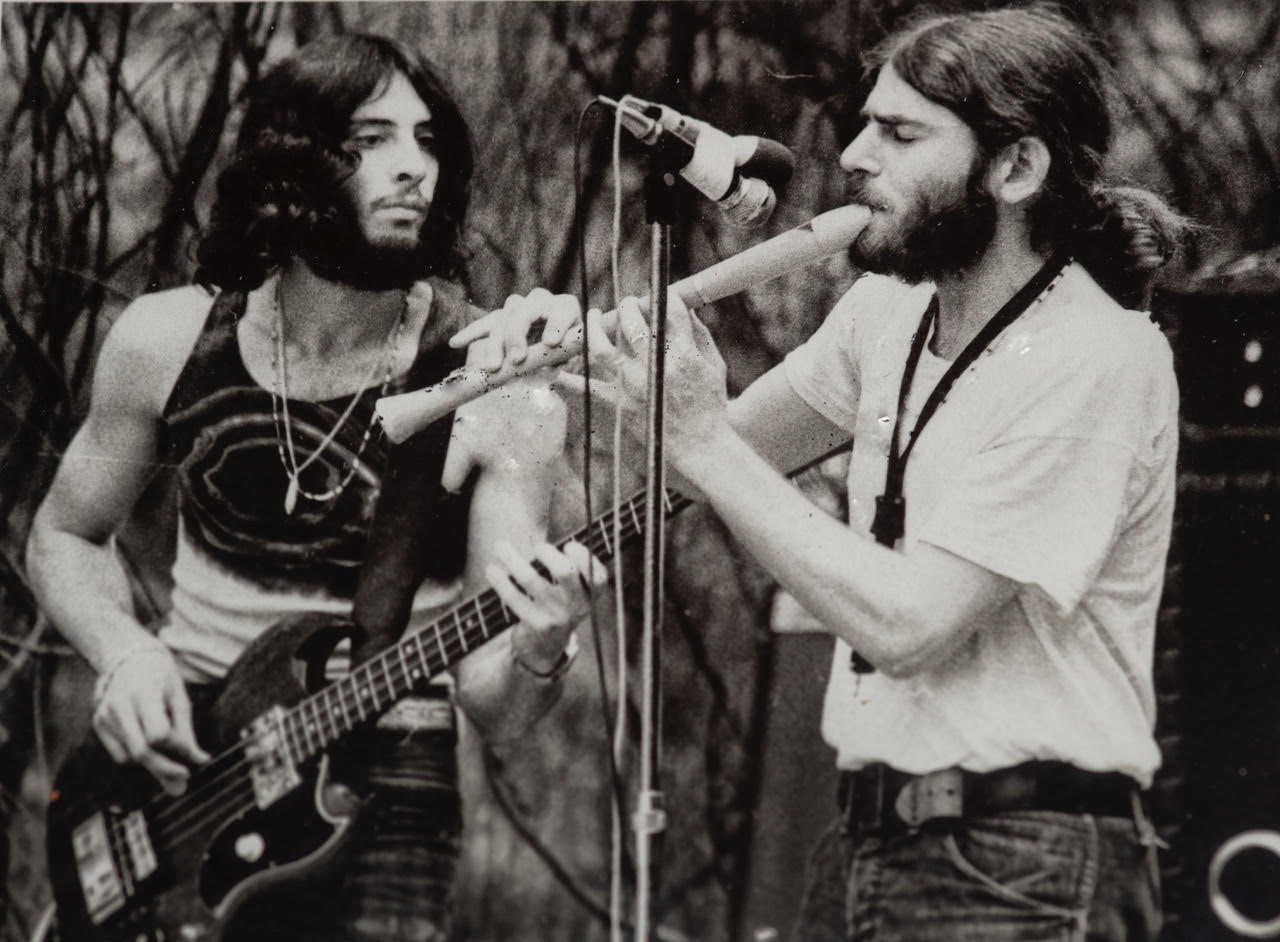
Marvin Kane: I understand your point but it never felt like a great sacrifice for me. It felt like I was just doing what felt right to do. It’s not like I was at a crossroad thinking, well, I could go to Europe or I could become an accountant. It seemed like it was a no brainer, you know?
Jay Dorfman: The other thing we talked about yesterday was how audacious it was for four 19 year old kids from a working class Brooklyn neighborhood to dream up a crazy idea like forming a rock and roll band and trudging off to Europe. I think growing up where we did may not have been all that different than the Beatles growing up in Liverpool.
Marvin Kane: I think that’s true. I also think that growing up where we did provided some incentive to explore the larger world.
Jay Dorfman: I think that’s right. Hey, I mean like Liverpool, Sheepshead Bay, right. You know, living fairly insulated lives, blue collar families and all. None of us were the children of privileged doctors and lawyers and professors. The energy that we got from this little ghettoized, Brooklyn neighborhood was a cultural phenomenon. And one has to understand the baby boomer generation, those who were born between 1946 and 1962. There were 76 million babies born in the USA during the time that we were growing up. I’ve always had this sort of strange sense that when we were doing what we were doing, when psychedelic music first came out and when all of this great music started, it was a sort of sense that it was a huge, mass of people, all doing it together.
“We had rock music, we had drugs, we had mentors”
Woodstock, one of the first big music festivals, drew 400,000 young people. We would have been there, but we had shipped off to Europe, where we intended to try to make a living as a band. There were so many baby boomers and, you know, they were all over Haight-Ashbury in San Francisco, Greenwich Village in New York and all over the world. They were all listening to the same music. They were all taking the same drugs. They were all reading Timothy Leary and Richard Alpert and Alan Watts and the The Tibetan Book of the Dead. And everybody was sort of feeling the same sense that there’s something much bigger out there. And that really fueled the generation. We had rock music, we had drugs, we had mentors, you know, wizards that told us to “tune in, turn on, drop out”. It was a lot of energy that allowed us to dream. I don’t think there’s been a generation since that has really been allowed to do what we did. I don’t think they’ve been allowed to dream dreams quite as big as the ones that we were allowed to dream. I mean, we basically came to our parents and said, “We’re leaving college. We’re going to Europe”.
Andy Dershin: This was not consistent with the plans they had for us and as much as they resisted we followed our instincts anyway.
Jay Dorfman: And we got away with it. We got away with it. We did it.
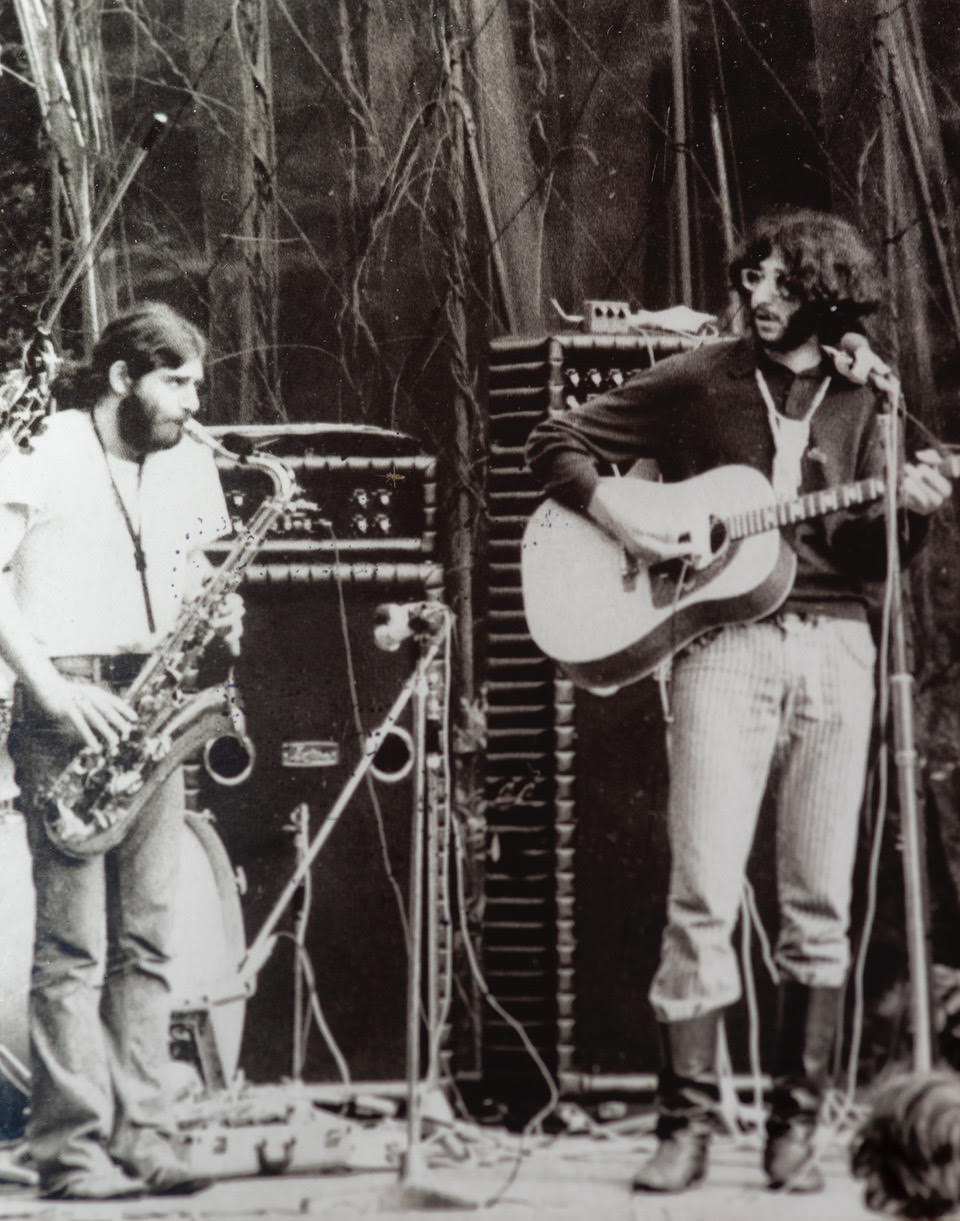
Andy Dershin: My mother said, “Hey, where are you going?” I said, “I’m going to Europe.” “Where?” she asked. “I’m going to England first.” My mother said, “people in Europe have dirt floors. I said, “no, no, they don’t have dirt floors anymore, Ma.” “How long are you going to stay?” she asked. I said, “Ma I got a one way ticket and $135. So I’m all set”.
Seriously. I had $135. Michael had like $250 and our friend Marty had about $600 or $700. We bought our own tickets and pooled our money together. And that’s how we were able to go.
Jay Dorfman: You could probably do that during that era, during this period when there was a sense of humanity and sharing and the word love was bandied about- as if we knew what that really meant. Coincidentally, what I realized is also doing some reading recently, you know, the birth control pill was invented when we were kids.
Andy Dershin: Believe me. I remember that. I was forever product testing.
Jay Dorfman: We grew up in an era when not only were we stoned most of the time but so were our girlfriends. And we had less fear of the implications of this “free love” that was exploding because they were taking birth control pills and their parents were allowing them to take them. I mean, we had several girls, average age 19 who left America and came to live with Sweet Smoke in the early days.
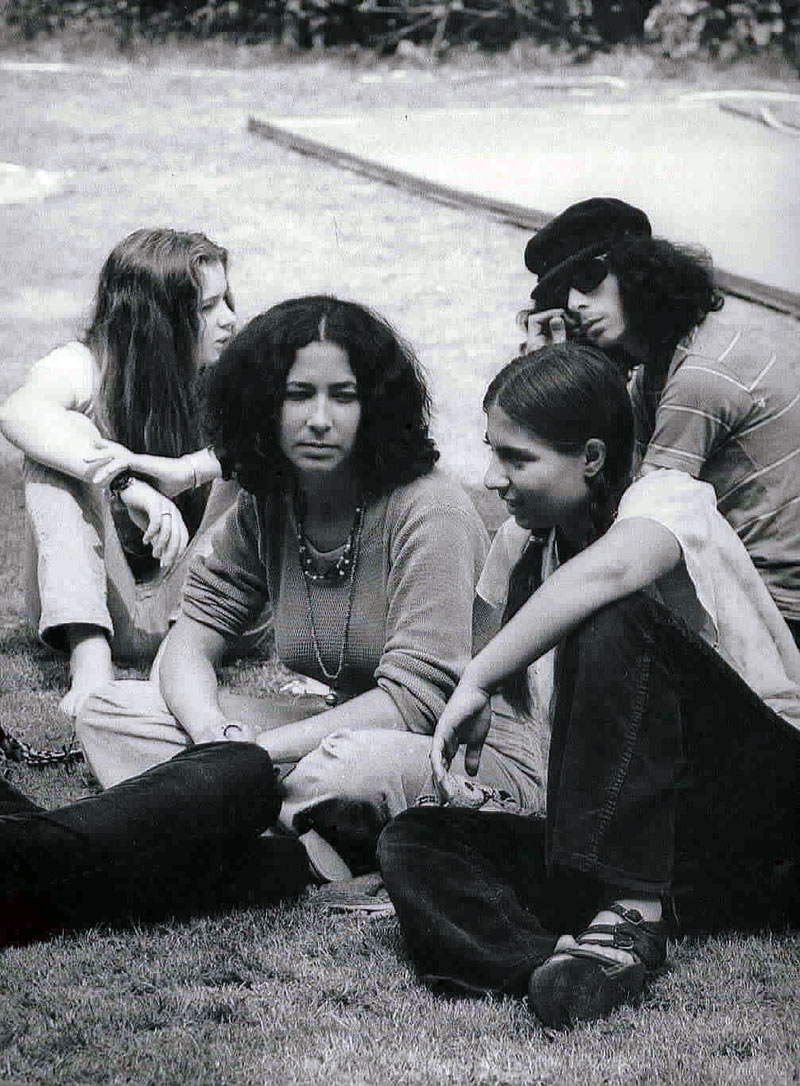
Andy Dershin: There was no problem getting beautiful people to come and live with us. Yes, including free thinking women, which was definitely a wonderful thing.
“We felt we were creating our own society by having this group of people who wanted to be part of the same environment”
Andy Dershin: We had such a positive outlook. We felt we were creating our own society by having this group of people who wanted to be part of the same environment. Jay, you mentioned this yesterday; when the band first got together in Emmerich, our friends were musicians, artists, writers, and other creatives who were all dreaming big. Do you remember those afternoons where we would just play music, like for hours, literally for hours? We didn’t know if the song would ever stop. Talk about honing your craft!. We learned to make music by listening to each other. The job was very enjoyable.
Marvin Kane: Call it work? That wasn’t work, haha.
Andy Dershin: Yeah, that was not work. That was wonderful.
Jay Dorfman: I was thinking also about the early days. We arrived in Germany with a master plan to settle in Holland because we knew it was politically and socially liberal. There was a lot of freedom and we decided that we would all meet there. We all had slightly different agendas at the time, but we all shared the dream of meeting in Europe. As it turned out, we found ourselves in Germany, in the company of renowned sculptor and wizard Waldemar Kuhn. He and his family were largely responsible for our existence for that first year in Europe. I mean, he literally took us in and we lived in his home.
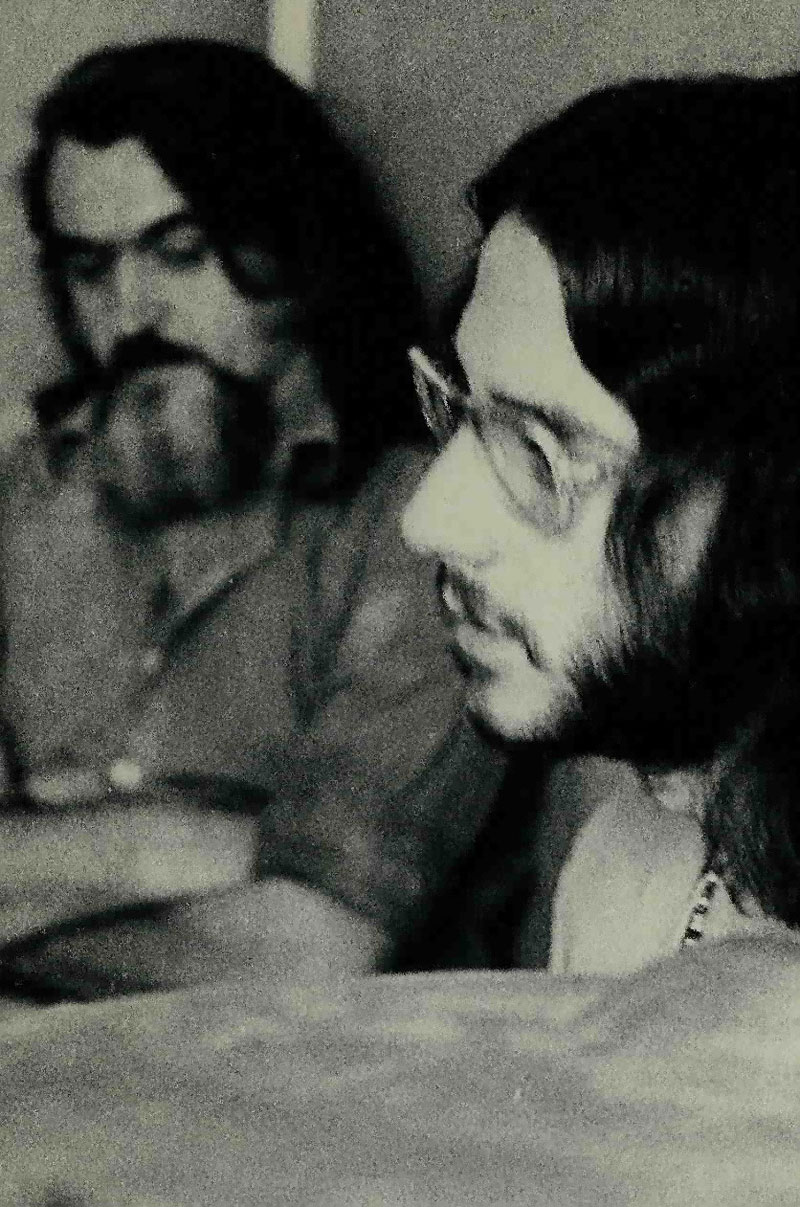
Andy Dershin: He saved us. he stabilized us. He helped us find the house that we wound up renting.
Marvin Kane: Amsterdam at the time was the hippie capital of Europe. So naturally it seemed like the best place for us. But my recollection is that the Dutch border guards wouldn’t let us in. Apparently Holland had enough hippies with no money and no immediate plans to make any .
Andy Dershin: Michael and I took the $400 you guys sent us and bought a beat up a VW van that we would use to lug our equipment around. And that was our transportation. It was like a cargo van -two seats in the front and a big open space in the back. So we’re driving through Germany and we’re at the Dutch border, literally in Emmerich. And this shows you how naive we were; the border guard said, “Where are you going?” We said, “we want to go to Amsterdam to meet our friends. We want to live there and play music.”
We tell him all this stuff. Right. We were so naive. So he stamped our passports – “Toegang Geweigerd”. The stamp was the size of a whole page in my passport that roughly translated said “Fuck you, you’ll never come into this country ever again.” So we wound up in Wesel, a small German town in the Rhein district, because it was bigger than Emmerich. We were trying to get in touch with you guys somehow. I don’t remember exactly but I think we actually called you. We went to the post office and called one of you guys to tell you “Hey, stop. We know everybody’s planning on meeting us in Amsterdam, but we can’t get into the country.”
Jay Dorfman: I think at that post office you met Kuhn’s son Rochus’ girlfriend. She introduced us to Kuhn and soon after that, the remaining band arrived in Europe. We went from the airport straight to Waldemar Kuhn’s house.
Andy Dershin: Exactly, haha.
“We’re still in the mode of discovering”
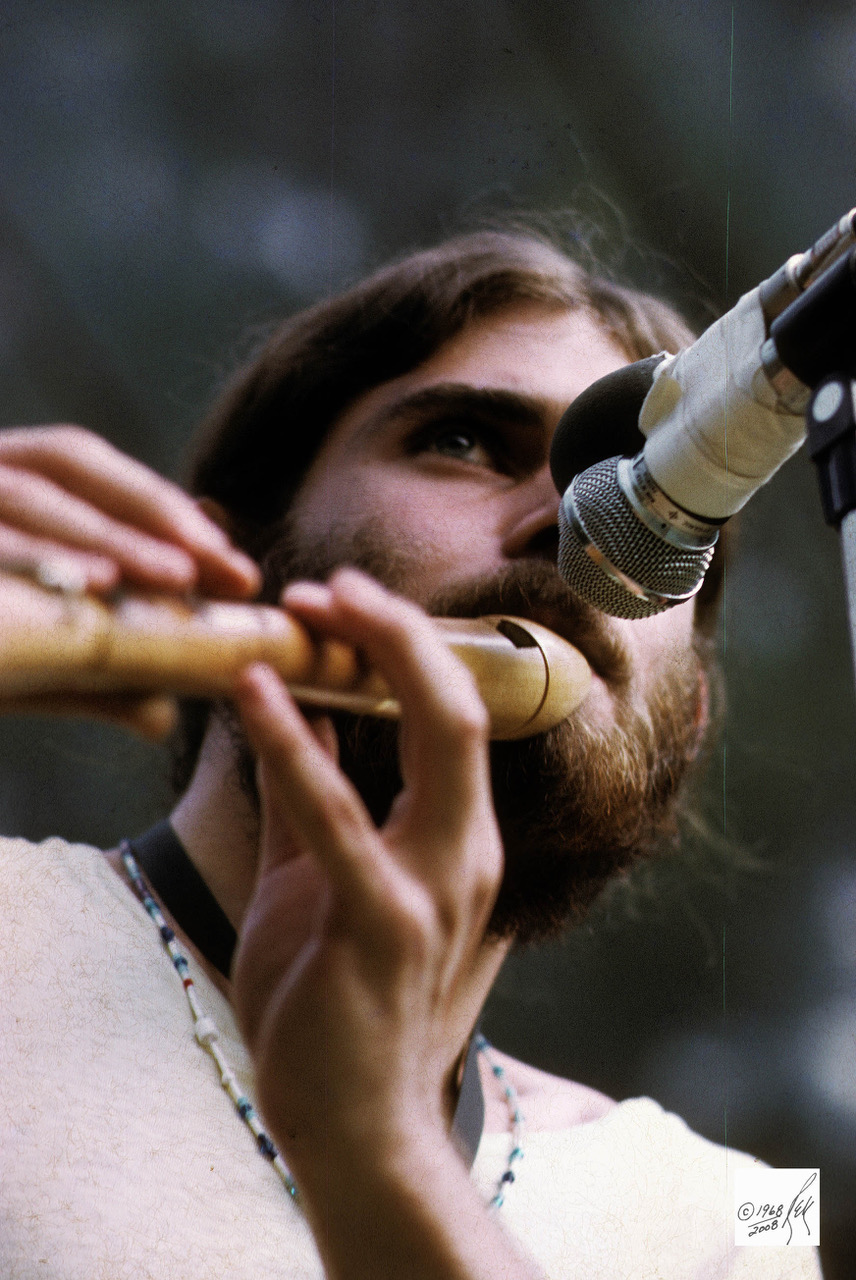
Marvin Kane: I was the last one to arrive in Europe. I remember the journey well. I flew from New York to Reykjavík, Iceland with my Gibson ES355 guitar in one hand, weighed down by a 20 pound hardshell case, and an overflowing backpack strapped to my shoulders. This was before the widespread use of jet planes so I spent 13 hours in a rumbling, noisy airplane cabin. When we arrived in Reykjavík it took the entire layover for my body to stop vibrating. The next phase of the journey was the flight from Reykjavík to London. From there I got on a bus to Victoria Station then another train to Dover. Next was a boat to Oostende, Belgium and a series of train rides that took me, mercifully (the trip took forever), to Emmerich, Germany. I remember making a phone call to Kuhn’s house and about a half hour later was picked up by a smiling, goofy lad they called Clemens. I couldn’t wait to meet the man I’d heard so much about.
Jay Dorfman: The internationally known sculptor, Waldemar Kuhn’s work to this day dominates the landscape of almost every building and church in his home town of Emmerich. He suddenly finds us in his humble house. He’d been living a pretty modest lifestyle as an artist and suddenly he’s got five American rock and roll 20 year olds sleeping on his floor, one of them sleeping with his daughter, and basically feeding us. The only money we had was in our pockets.
Marvin Kane: We didn’t have a lot of money, which was why we used to love to get invited to places.
Andy Dershin: What’s the line I’m looking for from A Streetcar Named Desire? Something about taking advantage of the kindness of strangers. Basically that was us. We went to Europe and said, “Okay, now that we’re at your house, you got anything to eat?”
Jay Dorfman: How did we transition out of Kuhn’s house?
Andy Dershin: I think Margaret, Kuhn’s wife, kicked us out with a big smile on her face.
Jay Dorfman: Margaret finally got up the gumption to ask us to leave.
Andy Dershin: I was oblivious. We were working in Kuhn’s atelier. He was actually producing quite a bit of art at the time. I remember helping him cast some large bronze pieces. We were basically just hanging out, eating his food and sleeping wherever we found space on the floor of his kids’ room.
Marvin Kane: I never stayed at Kuhn’s house. I think by the time I got there, you’d already moved out. Is that right?
Jay Dorfman: His relative Frau Lansing owned a farm, they had dairy cows and roses. They had a small house on the property that they rented to us.
“They started writing stories about these Americans who came to live in this little farm house”
Jay Dorfman: I think it was in that house where Sweet Smoke started to form roots. We had a practice room and formalized a base station for the group. And by the time we started to practice and work on material we began to see photographers like Joachim Hassenburs. And there were a couple of journalists who came and they started writing stories about these Americans who came to live in this little farm house by the river. And that was the early beginning of our press.
Andy Dershin: So it was the original five – Andy, Marvin, Jay, Michael and Victor. Victor Sacco was the lead guitarist at the time.
Jay Dorfman: Yeah. We had one big practice room, a kitchen, and a couple of small bedrooms that maybe 10, 12 of us slept in,
Andy Dershin: Right. There were three or four little bedrooms upstairs that we and everybody else slept in. If I remember correctly you could do at least five seasons of a comedy series and never have to leave the bathroom. It was really the most interesting room in the house … and there was just a shower, a toilet and a sink.
Jay Dorfman: I came to the realization that the place had been abandoned when I discovered someone had left their teeth on the window sill. It was like there was a party that evening and when I came down to use the bathroom the next morning, someone had forgotten to take their false teeth with them. Do you remember that?
Andy Dershin: No, I don’t remember that one.
Jay Dorfman: Yeah. That led me to believe that maybe people were getting more stoned than they should have when they leave their teeth behind.
Marvin Kane: Well, it reminds me of the drunk peeing in your bed in Puerto Rico.
Andy Dershin: Before we went to Europe, Sweet Smoke got a gig in St. Thomas and Puerto Rico for three months. We played in these sleazy bars where sailors would come to hook up with prostitutes. We played like five or six sets for five or six hours a night. We were young kids. They paid us, they gave us an apartment to live in and in return we just played our asses off. And that’s where we cut our teeth as a band. We were playing some original music as well as other people’s music. And like Jay was saying, it was like when the Beatles were in Hamburg. They were playing in the red light district … We were doing the same thing in Puerto Rico and St. Thomas.
Jay Dorfman: Now that you mention those days we always had women circulating around where we were. Correct me if I’m wrong but I don’t think it even occurred to us that prostitutes weren’t girlfriend material.
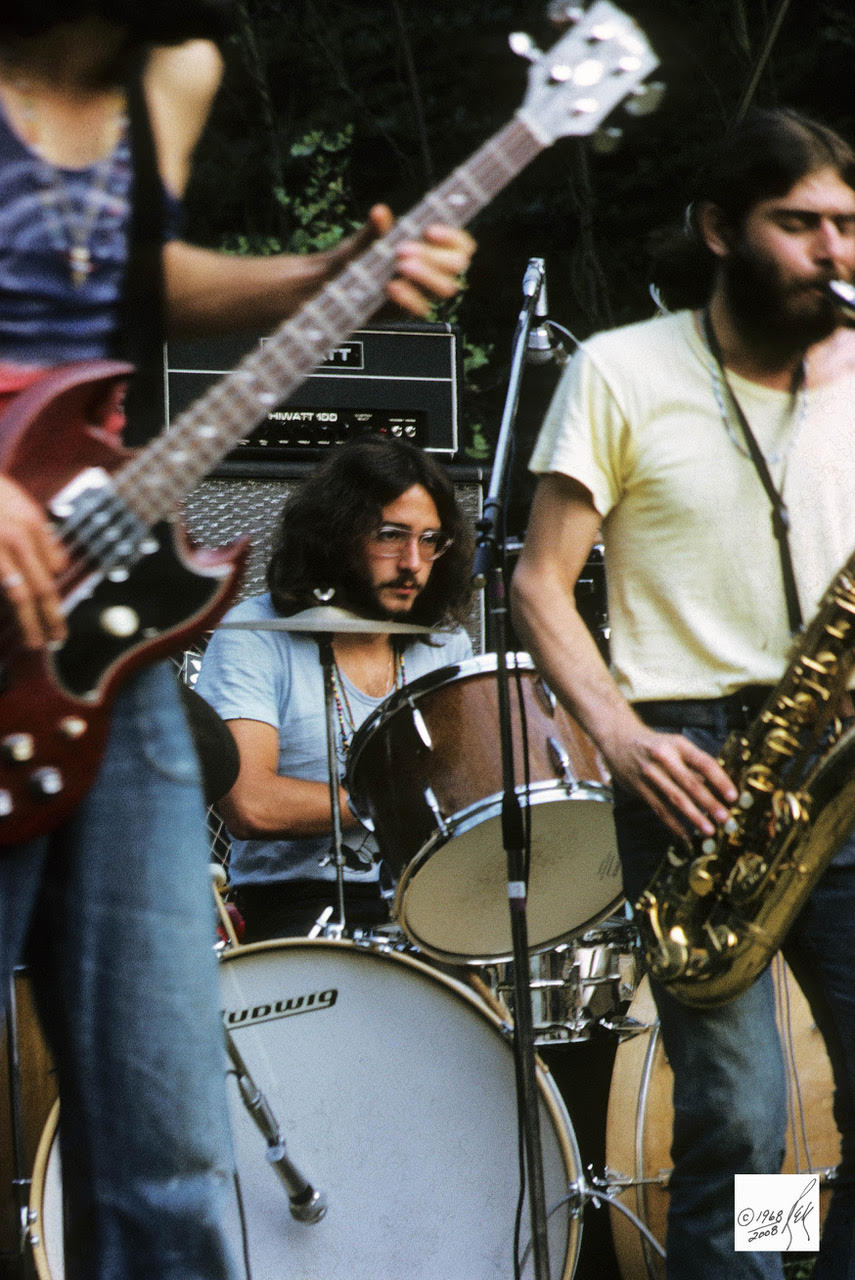
Andy Dershin: Well, I don’t know if you could use a different word than girlfriend.
Jay Dorfman: Well, there were a couple of shady women that none of us would have ultimately married who hung around quite a bit.
Andy Dershin: We were very good boys, but man, that was a wild place to be. I had just turned 18. You guys are like 19 and whatever. And we were just having a gas.
Jay Dorfman: Yeah. That was the first time I went away from America.
Andy Dershin: And that was my first experience as an adult.
Jay Dorfman: When we moved to Huthum, a small town along the Rhine River and got a lot of strangers visiting us. There were a lot of young people coming through. I remember l … what’s his name? Landers, right?
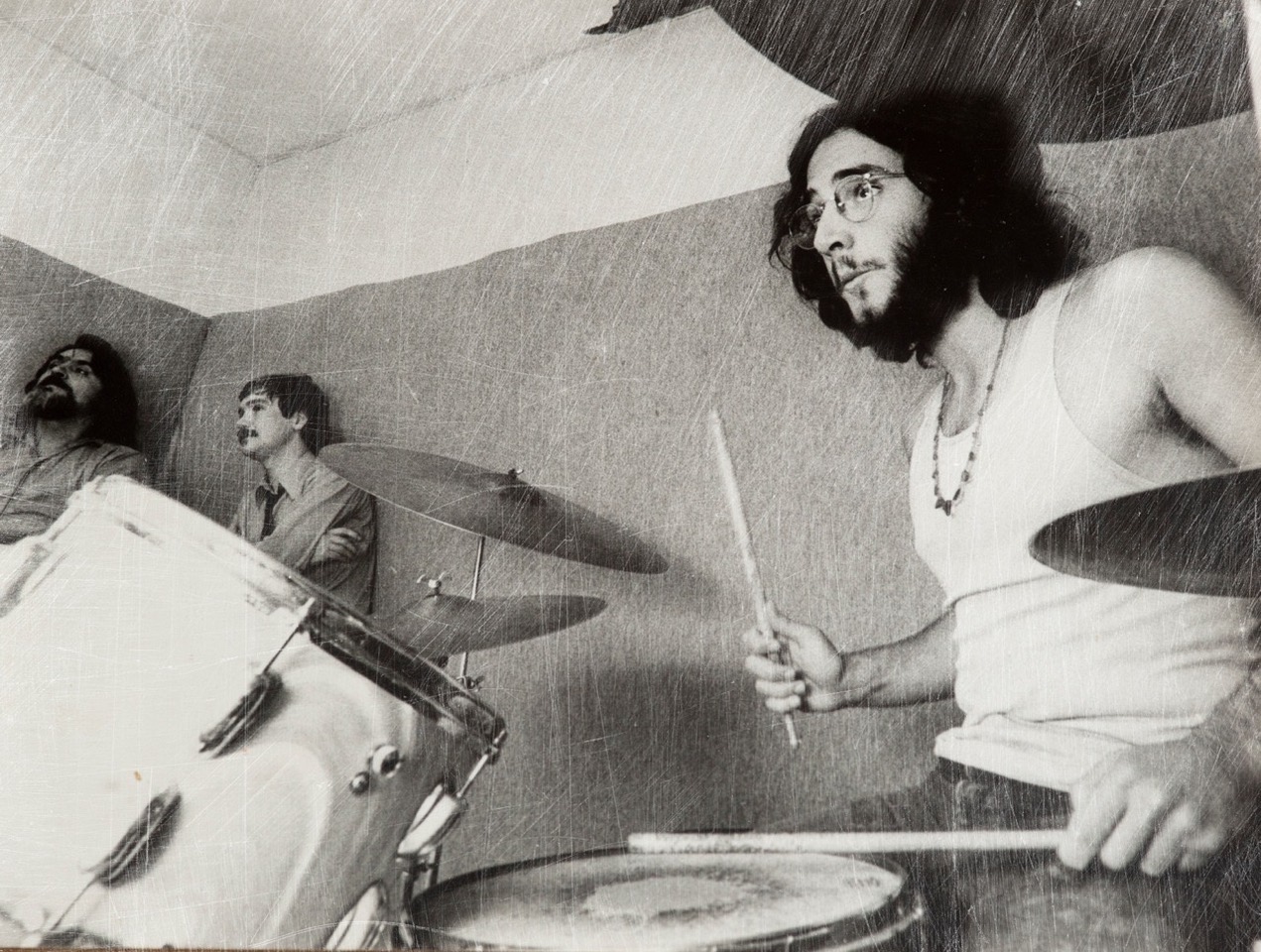
Andy Dershin: Steve Landers.
Marvin Kane: Yeah. The kid from Elton who lived down the road.
Jay Dorfman: Right. And then there was a young blonde teen who used to come by almost every day. Do you know who I’m talking about?
Marvin Kane: It seems like every German and Dutch kid we met was blonde.
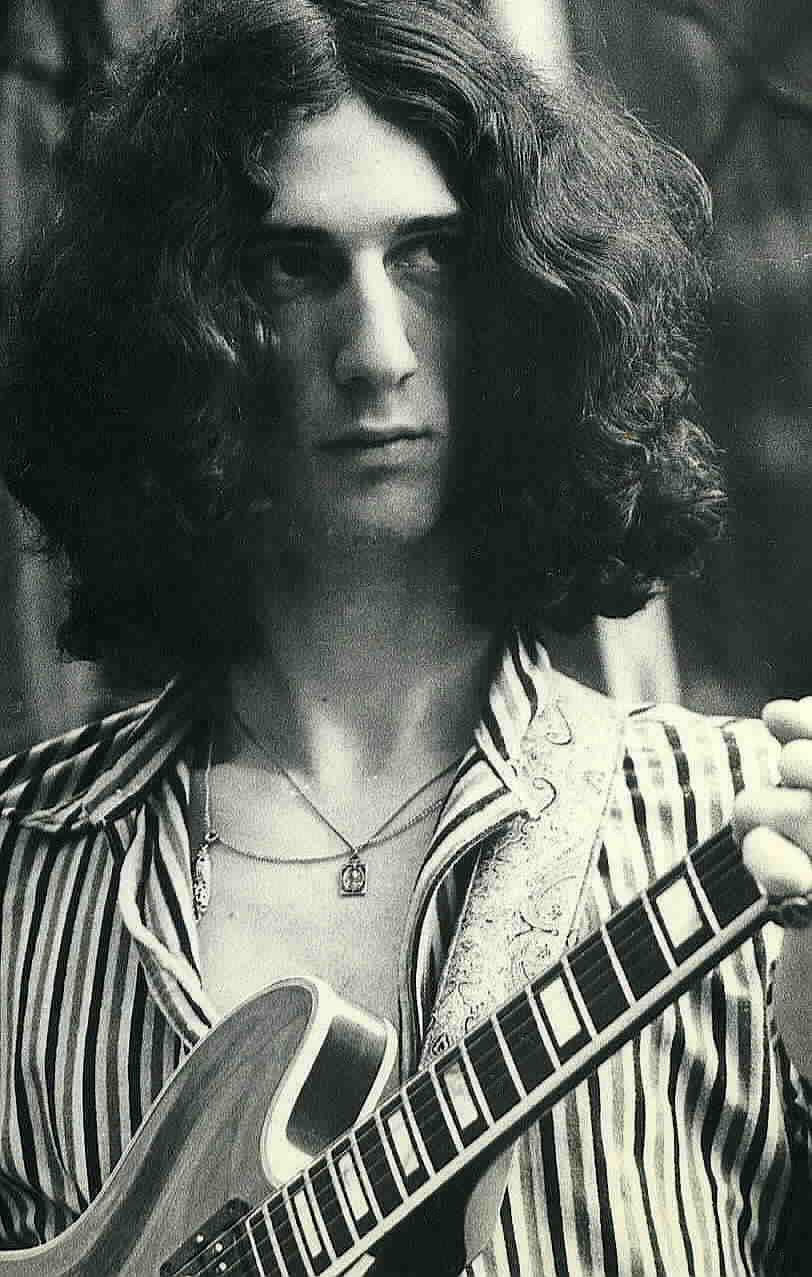
Andy Dershin: I just remember she spoke broken English and was brave enough to venture into a house full of American rock and roll musicians. She was treated very respectfully. We weren’t sluts. Do you remember how John Classi met us? He told us he came to Europe with a friend. They decided to go different ways so they split up. “I was hitchhiking and some German guy in a car said, ‘Hey, are you American? There’s a bunch of Americans living in this little farm down the road.” So he came to see what was going on and he never left. He’s remained one of our closest friends for over fifty years.
Jay Dorfman: He didn’t leave, but he joined the band. He joined with the unique distinction of not being a musician, which was a generous gesture at most right?
Andy Dershin: I never looked at John as a band member as much as a family member. There were a number of people that did some very crucial, important things for us who weren’t musicians. And John was one of those people along with Enid, Carol, Howie, and Marty. This group of people really supported us and helped us survive so we could play our music. This was the core family.
Jay Dorfman: And I was just going to touch on that. A bunch of people lived in the house who were good friends and they did stuff. They gardened, they were roadies. Nobody was idle. So when we finally got our contracts and Sweet Smoke royalties started coming in, we decided that they would actually be written into the contract as recipients of royalties.
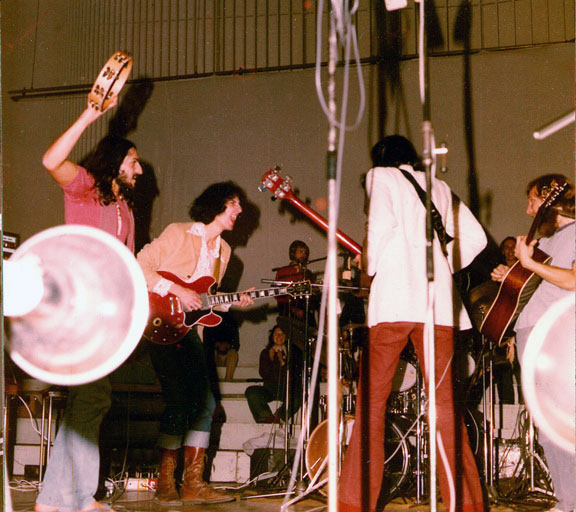
Andy Dershin: Only on the third album.
Jay Dorfman: Yes, only on the third album. It was our feeling that these people were like family members and they put their heart and soul into our lives and that they deserved something for their loyalty.
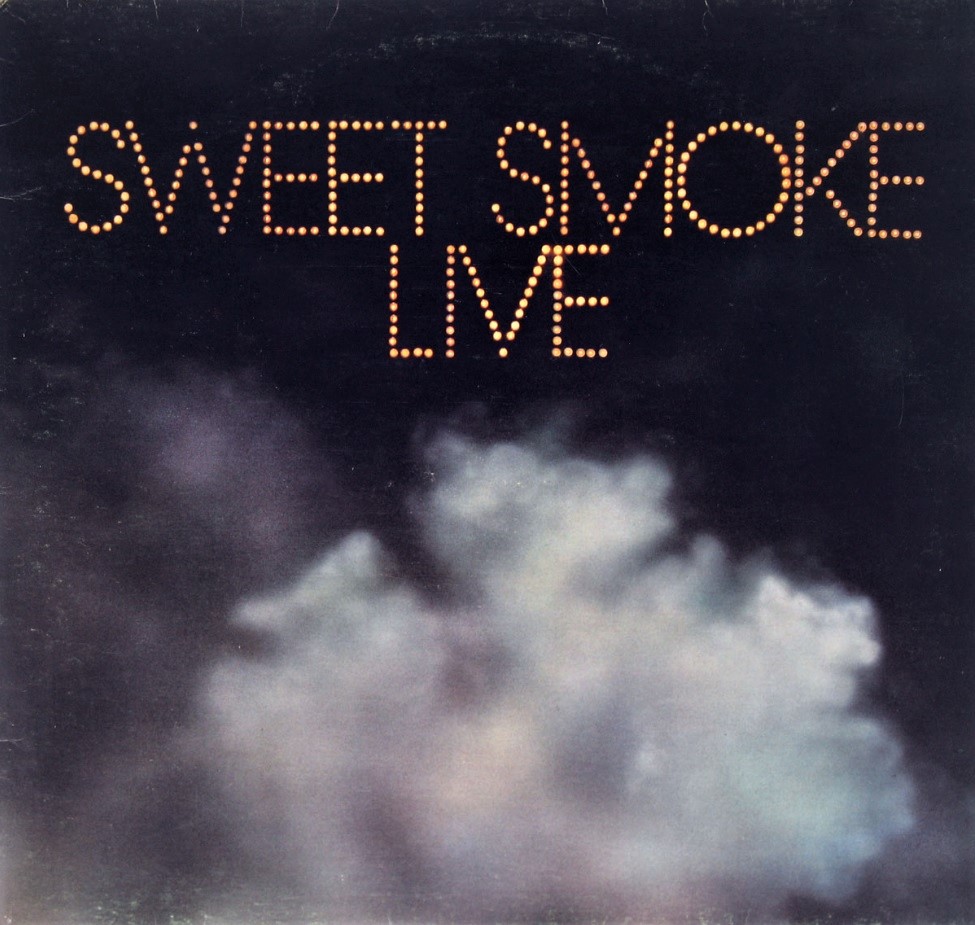
Andy Dershin: I agree. Because, like I said, we were family, we were different. That’s what allowed us to be successful over many other bands like us because everybody, including the people that weren’t the musicians but were part of the family took on responsibilities. Whether it was doing our sound at gigs or keeping our accounting in order we would never have made it without them.
Marvin Kane: The dynamics were so interesting. We had a band. We had a house, and suddenly we had a commune. And not only did we have a house, but now we had family members, girlfriends and wives… we had gardens and we had to feed a bunch of people, strangers and friends and family who came from America to stay as long as they wanted. It was like this free for all.
Andy Dershin: Wonderful man.
Marvin Kane: It was all a sign of the times. That’s the way it was.
Jay Dorfman: We weren’t making hit singles. We weren’t making a lot of royalties. We were basically living a dream, a lifestyle…
Andy Dershin: And, I’m going to say this, that’s why I felt the sacrifice was worth it – to have that dream, to even give up some of the money we earned. We did support everybody. But they supported us too. We did it all for each other. It was that sixties vibe that showed the importance of each person, respecting each other and respecting women and working really, really, really hard.
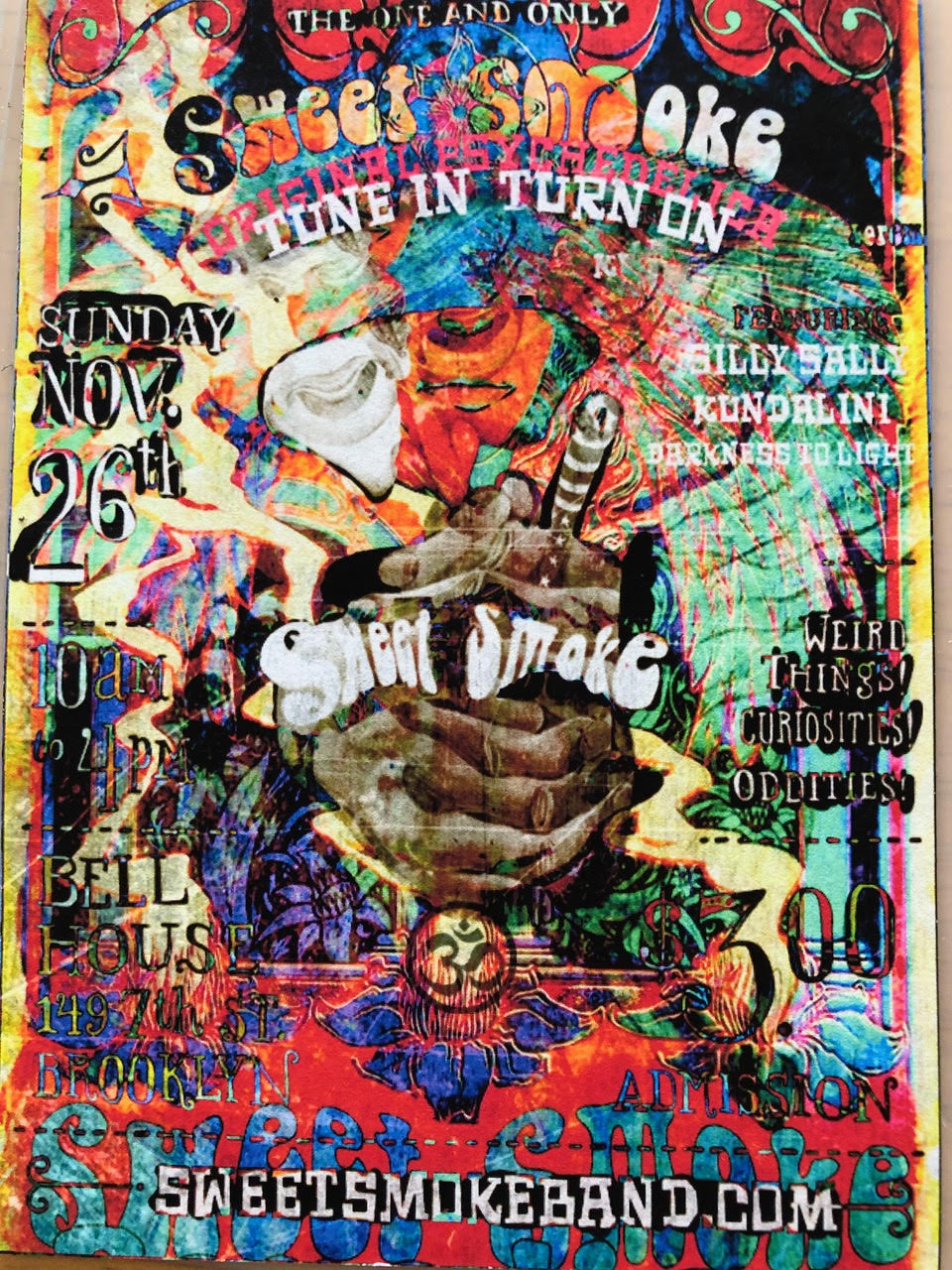
Postscript
Jay Dorfman: When we last left my home in the Shire after the initial interviews, I came back thinking we missed the point. I thought we weren’t talking enough about certain things. Looking back it’s tempting to explain our once-in-a-lifetime adventure as the reckless gamble of a group of crazy, drug fueled rock and roll psychedelic Brooklyn, merry pranksters and trippers. But that would be wrong. We were following a map laid out for us. And I remember we didn’t touch on it. And when I came back, I wrote this page and I want to read it to you, and see if it spurs any last thoughts. Because I remember thinking to myself, this is what I wanted to talk about, but it goes a little back.
Marvin Kane: Go for it man.
“We invented Sweet Smoke out of a puff of improvisation”
Ours is an adventure story that unfolds in a certain time and place where only an adventure of this special kind was possible. The cast of characters are not armed with swords and weapons and amour, traversing a world that is fantastic and moving over a terrain that constantly refreshes, rather they carry guitars & amps, they pound drums, they cart loads of equipment, speakers, amplifiers, mixing boards across familiar landscapes and in short time across the ocean to foreign lands.
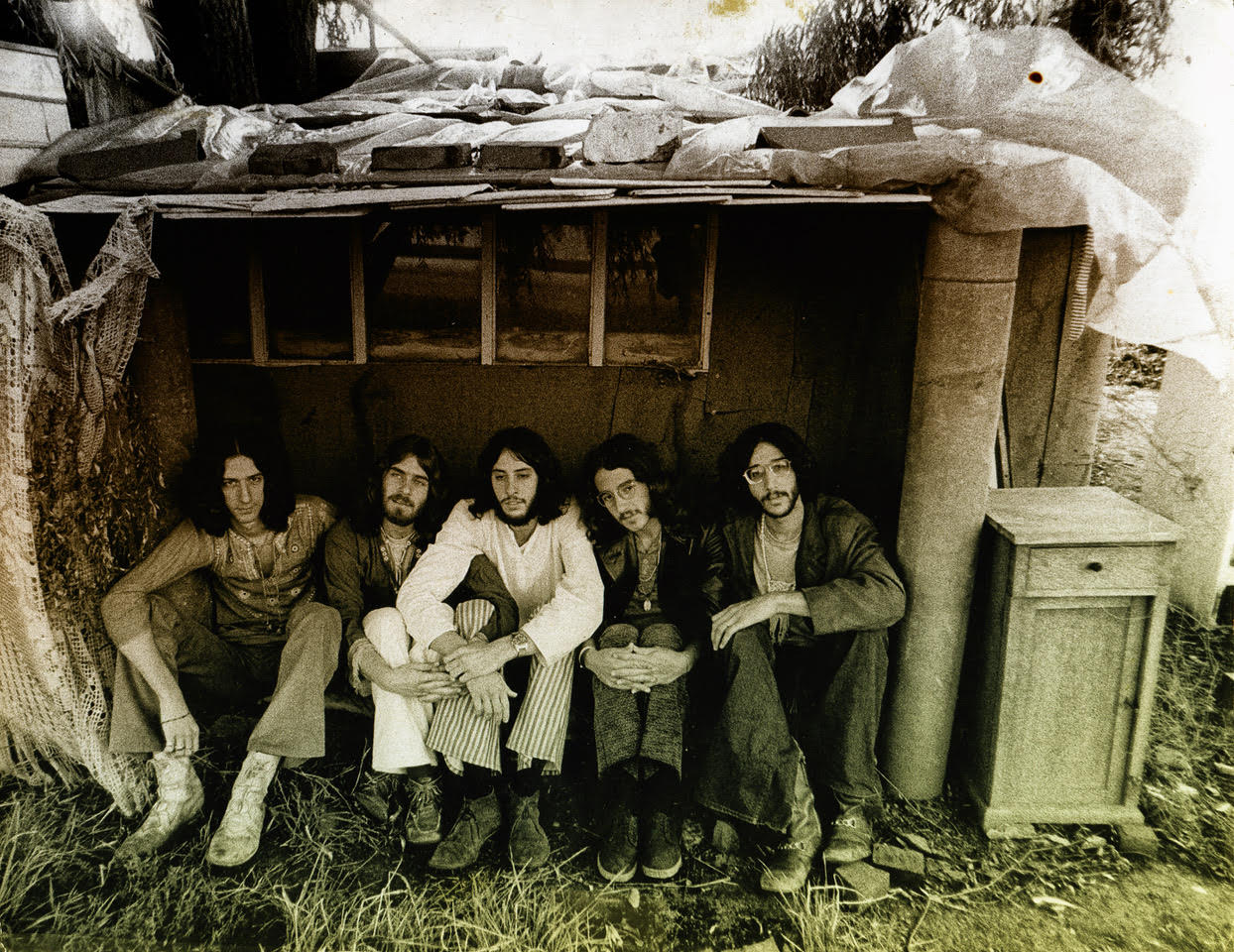
In this special time and place they are surrounded by mentors, and wizards and magicians, cosmic alchemists, and loud spouting prophets and oracles capable of taking the rare atmosphere and ambience of their native Brooklyn and transforming it into a sweet concoction of shifting forces and fresh attitudes powerful enough to sweep them up and carry them along the crest of a great wave of change to places they had never been and could never have easily imagined.
In this time, in this place four working class youths found themselves riding this wave together and landing them down in a place that at once appealed to them as so familiar and made of a material so tuned to their fates that they would decide to give it a name.
Sweet Smoke was born on the psychedelic cloud that was headed to adventures and new frontiers that would change each and every individual’s connection to the universe.
And they would not have to do it alone or without guiding spirits, this new landscape was rich with sign posts and companions, folks who emerged organically from a population of youth in America who were miraculously all feeling a similar kind of reaction to a world that was spinning swiftly out of control.
An electricity suddenly filled the air with a buzz that pulsed with possibility, discovery, hallucination and a wide open ended set of promises.
Any momentum that any of them had accumulated up to this point in their personal lives went up in a puff of smoke. For this tribe of Merry Brooklyn pranksters there was something taking place that was at once so strange and so eccentric that centered itself on the summer of 1967 that the period would heretofore be forever known as The Summer of Love.
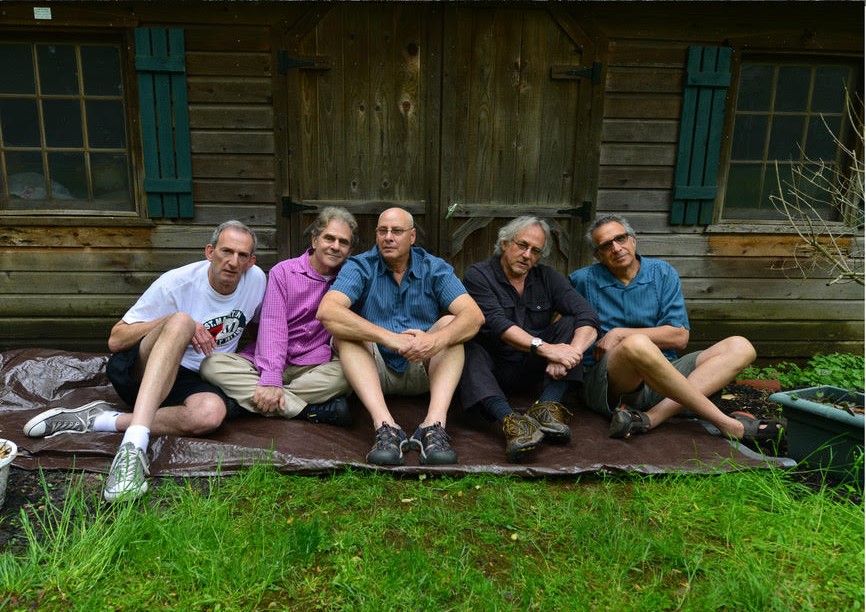
They needed only to jump aboard this free form tumble through the foot hills of euphoria. The summer of love hit them right where they were most vulnerable, a psychedelic sweet spot buried in their hearts and souls, and they knew all at once and one for all that for them the revolution would not take place in their homeland of Brooklyn. Jay Dorfman
Klemen Breznikar
Sweet Smoke Official Website
Sweet Smoke would like to thank Randye Kaplan for many of these photos. Also to Achim Hassenburs.
All photo materials are copyrighted by their respective copyright owners, and are subject to use for INFORMATIONAL PURPOSES ONLY!

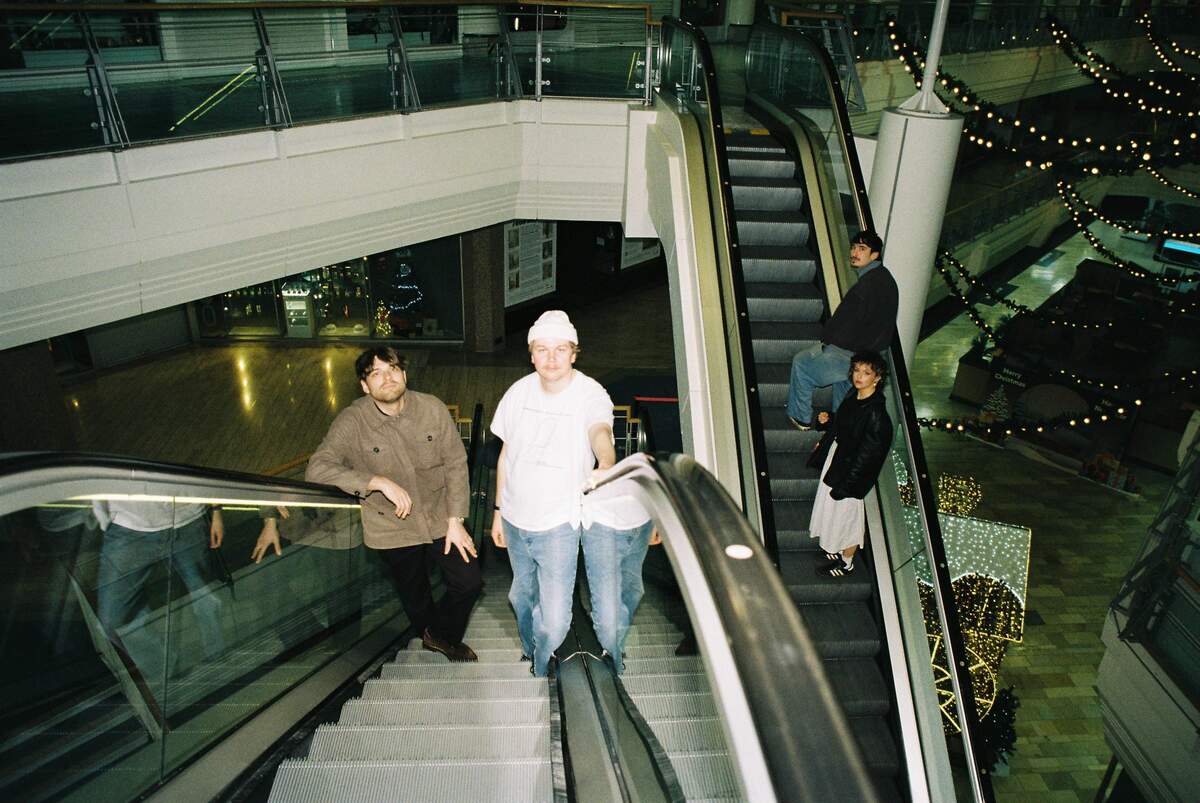


Spent the summer of ‘70 in Europe. Lived with Sweet Smoke at Christmas house in Emerich and got my o be one of their “roadies” for part of that time. Great band, great jams. Fun times! Glad we’re all still around to reminisce.
Very interesting article. As an old friend of the band, and a long time psychedelic music lover, I am thinking of posting the link to the interview on my Facebook timeline. Unless anyone objects?
Please do! 🙂
I,m reading this article and am stunned, finely I know my surspision is treu. it has long been a favarate,,,,allso the cover. I was born at the end of 69 and spended time in the hippy movement. i LOVE this record, Just a poke. I,v been seartching for the ather one and find out thear,s a live one two. I,v been singing some of the songs . PEACE MAN. Much more to say,,,,fenanimal record. Greatins from Amsterdam.